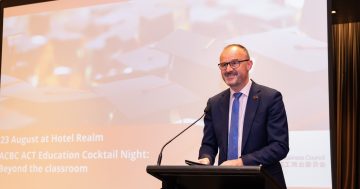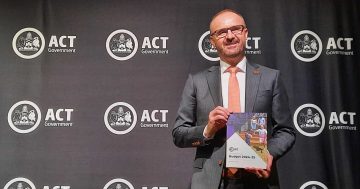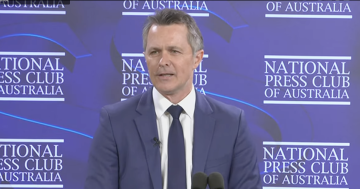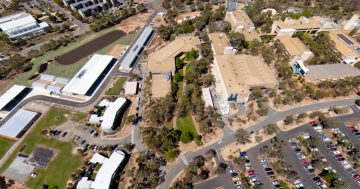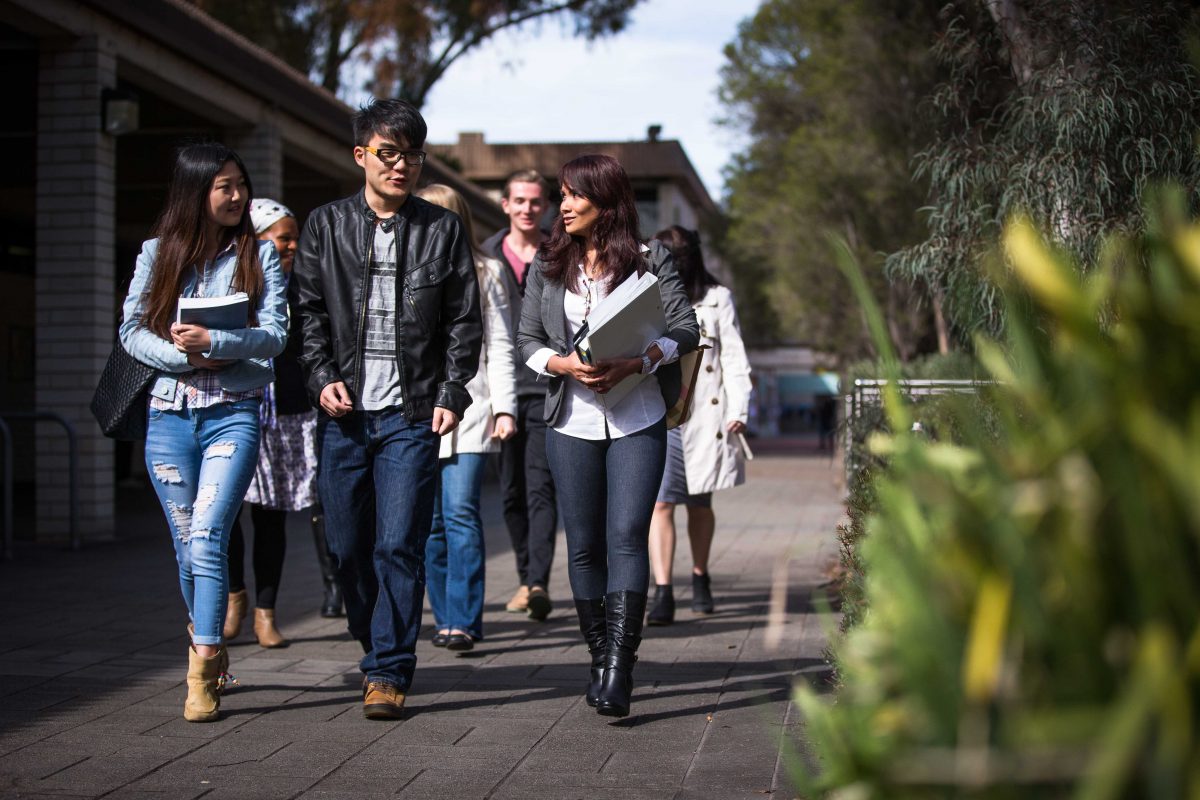
International education is a billion-dollar market for the ACT. Photo: UC.
Chief Minister Andrew Barr has gone into bat for the ACT’s largest export industry as the Federal Government moves to limit the number of international students coming to Australia.
In a recent letter to Federal Education Minister Jason Clare and now a submission to the Inquiry into the Education Services for Overseas Students Amendment (Quality and Integrity) Bill 2024, Mr Barr warns of the impacts on ACT higher education, the local jobs market, and of sending a message to current and potential students that they were no longer wanted.
Mr Barr told Mr Clare that last year, the ACT had over 21,000 international student enrolments, and for 2022-23, international education’s export value was $1.1 billion.
They also brought significant social benefits to the ACT.
He said the ACT Government supported moves to improve quality and integrity within the international education sector, but any changes to policy settings must carefully consider the impact of those changes on economies that rely on the sector.
Mr Barr argued that the ACT had demonstrated it could support international students without the pressures and issues experienced in some other larger cities.
The Federal Government proposals allow for higher enrolments above the cap by adding purpose-built student accommodation, but Mr Barr said ACT providers should be able to include nearby off-campus, market accommodation.
“State and territory governments should be closely consulted before making any decisions based on views about accommodation availability given that local jurisdictions would have a better understanding of housing availability,” Mr Barr said.
He also warned that a drop in numbers would have long-term, currently unforeseen impacts on the Territory’s tertiary education providers, given the $400 million a year they receive in course fees from international enrolments.
There was also the risk of damaging Australia’s reputation as a welcoming study destination with a high-quality offering.
“If not properly managed, persistent negative perceptions could undermine our ability to leverage overseas alumni networks to form meaningful diplomatic, educational and business links with our regional partners,” Mr Barr said.
In his submission, Mr Barr says the ACT is concerned about unnecessary restrictions on the sector’s growth and operations that may result in uncertainty among both providers and prospective students.
“Canberra’s higher education institutions are an essential source of the skilled workforce our economy needs today and into the future,” he says.
Mr Barr recommends several amendments to the bill to strengthen consultation before decisions are made, particularly with the relevant state and territory government.
This includes the section relating to student housing.
The submission urges that providers be consulted before they receive any formal notice.
Enrolment limits should also be notified before 1 July of the year before the first year of commencement so providers have enough time to plan for the next calendar year and reduce the risk of inadvertently overshooting enrolment limits.
This would mean the enrolment limits would come into effect in 2026 at the earliest, aligned with the expected commencement of the new system for Commonwealth-supported places on 1 January 2026.
The ACT says that states and territories should be given notice of a provider’s suspension so they can plan for and manage impacts on its future jobs market.














